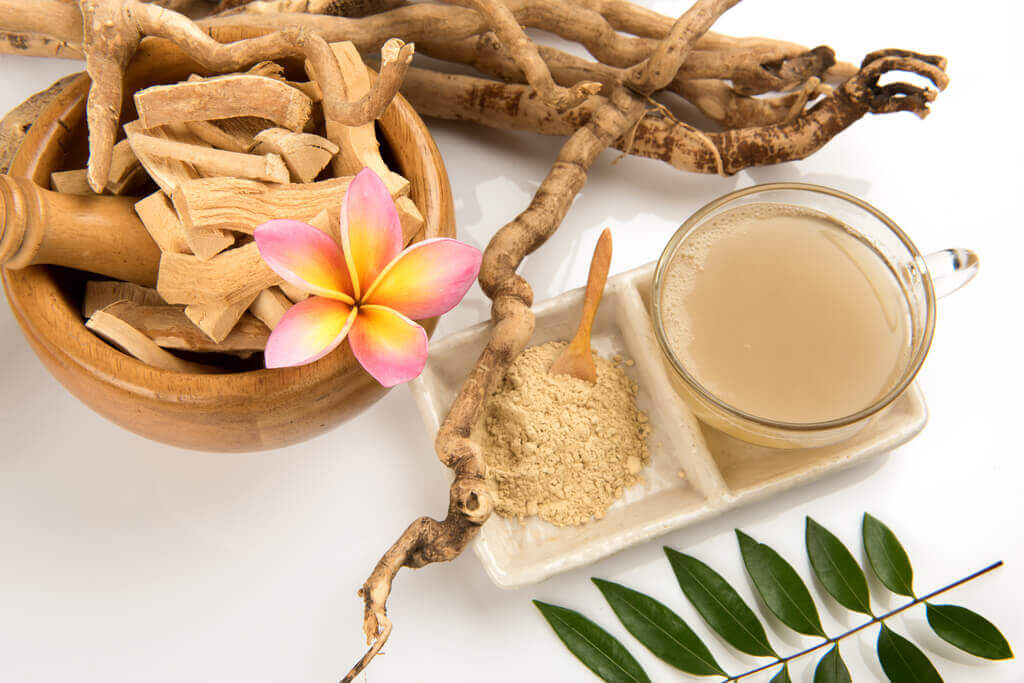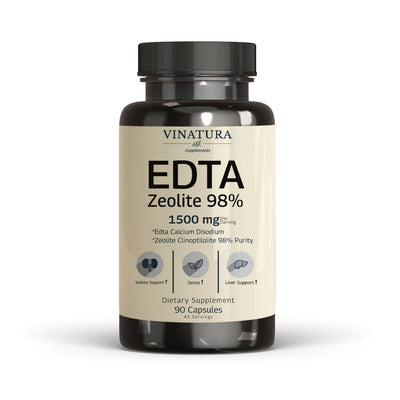
Tongkat Ali Side Effects Liver - Cautions And Notable Dosage
A study conducted in 13 healthy male recreational athletes using 400 mg of tongkat ali daily for 6 weeks reported no side effects on the liver.
However, the effects of tongkat ali on the liver remain unclear and controversial due to a lack of verification.
So, does tongkat ali affect the liver? What does science say about it? Join us as we explore research and user reports on this issue.
Before exploring further, please read the disclaimer located at the end of this webpage.
Key Takeaways
- The effects of Tongkat Ali on the liver are still unclear and remain a topic of debate.
- Some studies conclude that Tongkat Ali has no side effects on the liver.
- However, people with liver conditions should be cautious when using Tongkat Ali due to the lack of conclusive research.
- A few studies suggest that long-term use of Tongkat Ali may affect the liver, but low doses are considered safe.
About Liver Damages: Symptoms, Causes And Effects
The liver, often referred to as the body's chemical factory, plays a critical role in maintaining our health. It helps in the process of digestion, metabolizes drugs, detoxifies chemicals, and synthesizes proteins essential for blood clotting.
Numerous factors may contribute to liver damage. Drinking excessive alcohol consumption, obesity leading to non-alcoholic fatty liver disease, and viral hepatitis can also lead to liver damage.
So, what are common symptoms of liver damage that you need to know to recognize and prevent?
- Yellowing of the skin and eyes (jaundice)
- Abdominal pain or swelling
- Dark urine color
- Itchy skin
- Flu-like symptoms such as fatigue, nausea, or loss of appetite.
Does Tongkat Ali Affect Liver? Scientific Evidences

Some believe that Tongkat Ali has a negative impact on liver function; however, many others consider this herbal to be safe. These viewpoints are reported based on users' perceptions and personal opinions. So, Is Tongkat Ali hard on liver? and What does the scientific community have to say about this?
Scientific studies have provided insights into the potential effects of Tongkat Ali on the liver. Here is a summary of the key findings:
- The impact of Tongkat Ali on the liver remains unclear, with divided opinions.
- Most studies suppose no negative impact on liver or kidney function is found at normal daily doses or with prolonged use.
- Long-term use of Tongkat Ali can have effects on the liver, but low doses were considered safe.
- Usage caution is advised for individuals with certain conditions, including liver problems.
- A dosage of 400 mg/day for 6 weeks did not have adverse effects on liver and kidney function.
- Cytoprotective potential for the liver and kidneys is suggested due to antioxidant and anti-inflammatory properties.
- No significant changes in liver enzymes (ALT/AST) were observed with recent supplementation trials.
Study of Shaheed Ur Rehman focused on acute toxicity testing of Tongkat Ali. The LD50 (lethal dose for 50% of the population) of oral alcohol extract of Tongkat ali in mice was found to be between 1500 - 2000 mg/kg, while the LD50 of oral water extract of Tongkat ali was over 3000 mg/kg.
However, this study did not identify any negative impact on liver or kidney function at normal daily doses or with prolonged use.
Another study conducted by Chen et al. concluded that a dosage of 400 mg/day for 6 weeks did not have adverse effects on liver and kidney function (2).
Furthermore, Ching-Hao-Li et al. (study 4) examined the toxicity and genotoxicity of Tongkat Ali root powder over 13 weeks. The study suggested that E. longifolia may have cytoprotective potential for the liver and kidneys due to its antioxidant and anti-inflammatory properties.
In a study titled "Human Performance and Sports Applications of Tongkat Ali" (study 5) by Shawn M. Talbott, recent supplementation trials (200 mg/day for 4 weeks) showed no changes in liver enzymes (ALT/AST).
Typical dosage recommendations, considering traditional use and scientific evidence, suggest 50-200 mg/day of water-extracted Tongkat Ali root standardized to 22% eurypeptides for dieters and athletes.
Another study in 2015 (study 3), titled "Effect of Long-Term Use of Eurycoma Longifolia Jack on Histopathological Changes in the Liver in Rats," discovered that long-term use of Tongkat Ali can have effects on the liver.
The study observed mild to moderate bleeding, cellular degeneration, and fatty infiltration. However, it emphasized that low doses of the herb did not cause harm to liver tissue and could be considered safe.
This research involved 32 male mice administered three different dosages: a low dose of 250 mg/kg body weight, a medium dose of 500 mg/kg, and a high dose of 1000 mg/kg.
You may also like: Is Tongkat Ali a Good Aromatase Inhibitor?
How To Prevent Liver Side Effects from Tongkat Ali?
Though there are studies that suppose that using Tongkat Ali doesn't affect the liver, it is important to understand that using Tongkat Ali for any purpose requires caution and moderation.
Here are some tips on how to avoid any negative impacts of Tongkat Ali on the liver in particular and other side effects in general:
- Stick with the recommended dosages. The suggested amount of Tongkat Ali for adults is 1.2g per day and 50-200 mg/day for dieters and athletes.
- Choose high-quality extracts that are natural, organic, and free from unnecessary fillers or other additives.
- Do not take Tongkat Ali if you are pregnant, breastfeeding, have a liver condition, or have any other medical issues.
- Avoid taking Tongkat Ali in combination with other medications, including some supplements like vitamin C and iron that can interact negatively with the herb.
- It is best to take Tongkat Ali for short durations of time only (6-8 weeks). After this period, it is advisable to take a break and then evaluate if you need to continue taking it or not.
- Drink plenty of water and maintain a healthy diet to reduce the strain on your liver.
- Monitor yourself for signs of fatigue, nausea, headache or any other unusual symptoms that could indicate an adverse reaction.
As with any supplement, it is best to consult your doctor before taking it and discuss the potential benefits or side effects of this herbal extract.
Natural Alternative Methods For Liver Health
If you have concerns about using Tongkat Ali because of liver issues or if you want additional ways to enhance your liver health while taking Tongkat Ali, there are numerous natural methods to maintain a healthy liver. Here are a few suggestions:
- Avoid alcohol and excess consumption of fatty or sugary foods.
- Eat more fruits and vegetables, especially those high in antioxidants like cranberries, nuts, and turmeric.
- Exercise regularly and maintain a healthy weight.
- Take the appropriate supplements like Vitamin C, E, and B12 to support liver function.
- Limit your exposure to environmental toxins, such as herbicides and other chemicals.
- Practice stress relief techniques like yoga or meditation to manage fatigue and stress levels, which can affect the health of your liver.
By following these natural methods, you can help maintain a healthy liver and reduce the risk of any negative side effects from taking Tongkat Ali.
Other Sides Effects Of Tongkat Ali
Though Tongkat Ali has many potential health benefits, there are some side effects associated with it.
Common side effects include headache, nausea, and fatigue. Some users may experience an increased heart rate or insomnia, so be sure to consult your doctor before taking it.
Most of the Tongkat Ali toxicity are a result of exceeding the recommended dosage. Therefore, it is crucial to be mindful of the dosage in order to prevent these adverse effects from occurring.
Finally, bear in mind that it is always recommended to include a balanced diet and regular exercise as part of your health regimen. This will help support the effects of Tongkat Ali and promote overall well-being.
Read more: Why Does Tongkat Ali Taste So Bitter?
Frequently Asked Questions
Who Should Avoid Taking Tongkat Ali?
Tongkat Ali should be avoided by pregnant or breastfeeding women, individuals with liver conditions or other serious health issues, and those on certain medications that might interact negatively with this herb.
What Steps Can Be Taken To Safeguard Your Liver While Using Tongkat Ali?
To safeguard your liver while using Tongkat Ali, adhere to the recommended dosage, avoid combining it with other medications that could strain the liver, and maintain a healthy diet coupled with adequate hydration. Regularly monitor for any unusual symptoms and consult your healthcare provider if and when they occur.
What Are The Primary Liver-Related Side Effects Of Eurycomanone?
Eurycomanone, a key compound in Tongkat Ali, may potentially cause liver damage if consumed in high quantities. The primary liver-related side effects include elevated liver enzymes, fatigue, and abdominal discomfort. These effects are often reversible with cessation of use and are less likely if the supplements are used responsibly.
Conclusion
In light of recent scientific studies, it is evident that correct and responsible usage of Tongkat Ali does not lead to adverse effects on the liver among healthy adults. The potential health benefits of this herb can be fully harnessed, provided it is consumed responsibly at the recommended dosage. In addition, natural methods like a balanced diet and exercise can help improve overall liver health and further reduce the risk of any negative side effects.
References
- 1. Shaheed Ur Rehman, Kevin Kyungsik Choe, & Hye Hyun Yoo. (2016). Review on a Traditional Herbal Medicine, Eurycoma longifolia Jack (Tongkat Ali): Its Traditional Uses, Chemistry, Evidence-Based Pharmacology and Toxicology. Molecules, 21(3), 331–331. https://doi.org/10.3390/molecules21030331
- 2. Chen, C. K., Mohamad, W. M. Z. W., Ooi, F. K., Ismail, S. B., Abdullah, M. R., & George, A. (2014). Supplementation of Eurycoma longifolia Jack Extract for 6 Weeks Does Not Affect Urinary Testosterone: Epitestosterone Ratio, Liver and Renal Functions in Male Recreational Athletes. International Journal of Preventive Medicine, 5(6), 728–733. https://www.ncbi.nlm.nih.gov/pmc/articles/PMC4085925/
- 3. Alfaqeh, H., & Hussein, H. (2014). Pages: 15-19 To Cite This Article: Hamoud Hussein Alfaqeh-PhD., Long-Term Consumption Effect of Eurycoma longifolia Jack on Histopathological Changes in the Vital Organs in Rats. Advances in Environmental Biology, 8(18), 15–19. https://www.aensiweb.com/old/aeb/Special%2010/15-19.pdf
- 4. Ching Hao Li, Jiunn Wang Liao, Po Lin Liao, Huang, W., Ling Shan Tse, Cheng Hui Lin, Jaw Jou Kang, & Yu Wen Cheng. (2013). Evaluation of Acute 13-Week Subchronic Toxicity and Genotoxicity of the Powdered Root of Tongkat Ali (Eurycoma longifoliaJack). Evidence-Based Complementary and Alternative Medicine, 2013, 1–11. https://doi.org/10.1155/2013/102987
- 5. Talbott, S. (2013). Human Performance and Sports Applications of Tongkat Ali (Eurycoma longifolia). https://doi.org/10.1016/b978-0-12-396454-0.00053-9
Author

Product Disclaimer
The dietary supplement products mentioned on this website are formulated based on scientific research and adhere to FDA guidelines for dietary supplements. However, the content of the articles has not been evaluated by the Food and Drug Administration (FDA) and is not intended to promote or endorse any specific product. Any products sold on this website are not intended to diagnose, treat, cure, or prevent any disease.
Opinions and Endorsements
Any claims, statements, or opinions expressed in the articles are those of the author(s) and do not necessarily reflect the views or opinions of the manufacturers of the dietary supplement products. The products sold on this website are separate from the content of the articles and are not directly endorsed or associated with the information presented here.
Liability Disclaimer
The author(s) of the articles, website, and manufacturers of the dietary supplement products do not assume any liability for any potential consequences arising from the use of the information provided in the articles. It is recommended that individuals consult with a qualified healthcare professional before making any dietary or lifestyle changes, including the use of dietary supplements.
Product Usage
Please refer to the product labels and packaging for specific usage instructions and guidelines for the dietary supplement products sold on this website.
Customer Support
For any concerns or questions regarding the dietary supplement products, please contact our customer support team, who will be more than happy to assist you.







Leave a Comment
Be the first to comment.
What do you think?